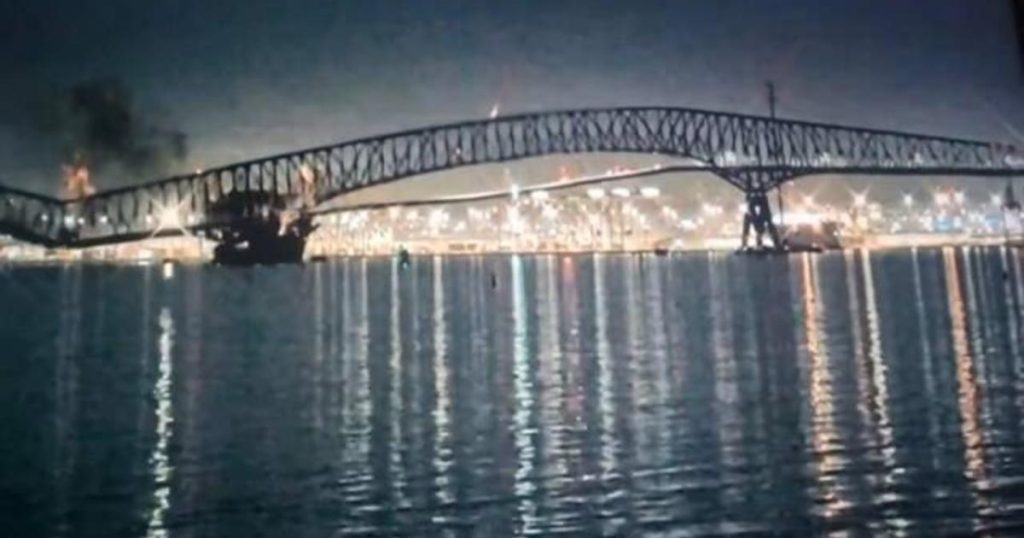On March 26th, CBS Morning News reported on a tragic incident in Baltimore involving the collapse of the Francis Scott Key Bridge. The bridge collapsed after being struck by a cargo ship, prompting a swift response from emergency services. Two individuals were rescued from the water following the collapse, highlighting the importance of quick action in such a crisis. The incident served as a stark reminder of the potential dangers that can arise in maritime transportation and the need for robust safety measures to prevent similar accidents in the future.
The report emphasized the immediate impact of the bridge collapse, with images showing the wreckage and emergency personnel at the scene. The collapse of a major bridge in a populated area raised concerns about the safety of infrastructure and the potential risks posed by maritime traffic in heavily trafficked waterways. The rescue of two individuals from the water highlighted the heroism of first responders and their ability to act quickly in emergencies. The incident also underscored the importance of proper training and preparedness for such situations to minimize casualties and ensure a coordinated response.
Following the bridge collapse, authorities launched an investigation into the cause of the incident, focusing on the actions of the cargo ship and any potential negligence that may have contributed to the collapse. The report highlighted the need for accountability and oversight in the shipping industry to prevent similar accidents from occurring in the future. Maritime safety regulations and protocols were called into question, with calls for improved measures to protect critical infrastructure and ensure the safe passage of ships in busy waterways. The incident served as a wake-up call for authorities to address potential gaps in safety protocols and enforce stricter regulations to prevent such disasters.
The impact of the bridge collapse reverberated throughout the local community, with residents expressing concern over the safety of infrastructure in the area. The incident raised questions about the maintenance and monitoring of bridges and other critical structures to prevent catastrophic failures. Local officials and engineers were called upon to assess the structural integrity of other bridges in the area and take necessary precautions to prevent similar incidents. The collapse served as a stark reminder of the importance of regular inspections and maintenance to ensure the safety of vital infrastructure and prevent potential disasters.
In the aftermath of the bridge collapse, efforts were made to assess the extent of the damage and develop a plan for reconstruction and recovery. The report highlighted the challenges facing authorities in restoring the bridge and ensuring the continued safety of maritime traffic in the area. Engineers and construction crews were mobilized to assess the structural damage and develop a timeline for repairs to minimize disruptions to transportation networks. The incident served as a lesson in resilience and the importance of preparedness in responding to unexpected disasters, with a renewed focus on rebuilding and fortifying critical infrastructure to prevent future accidents.
Overall, the CBS Morning News report on the Francis Scott Key Bridge collapse shed light on the immediate impact of the incident, the response of emergency services, and the larger implications for maritime safety and infrastructure. The incident served as a cautionary tale of the potential risks associated with maritime transportation and the need for stringent safety measures to prevent similar disasters. Authorities were urged to investigate the cause of the collapse, improve safety regulations, and take steps to prevent future accidents. The community was left to grapple with the aftermath of the collapse, with a renewed focus on ensuring the safety and integrity of critical infrastructure in the area.


